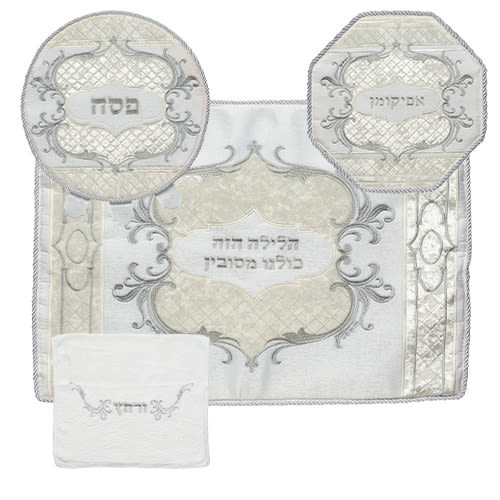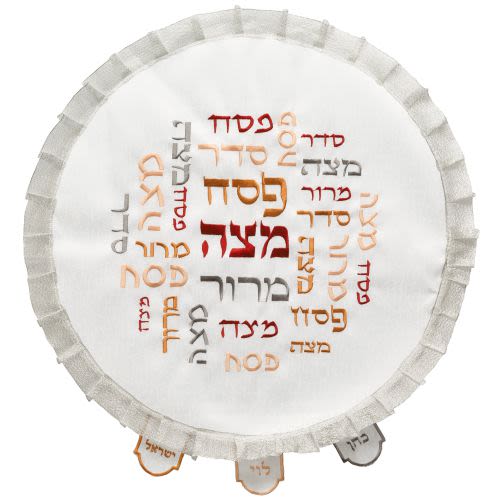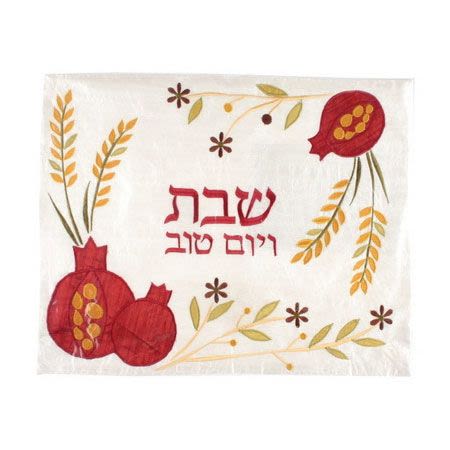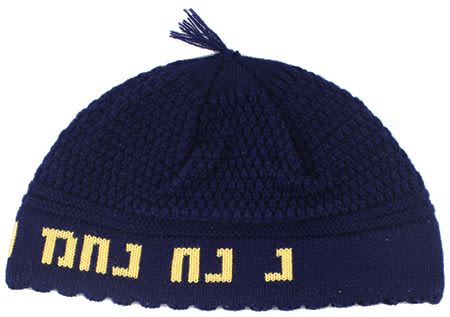
The Spiritual Solution
The elderly people with no emuna deteriorated quickly while the group who had spent their lives cultivating emuna were less angry and less frightened by death…

A few years after becoming religious, I took a position as a psychotherapist in a Jewish home for the aged. About 80% of the residents were secular Jews and the remaining 20% were Torah observant. It was fascinating to note the differences between these two groups. Most of the residents were attached to the giant screen despite the efforts of the staff to create incentives to the contrary. As the new resident shrink I was given the dubious honor of speaking to the elderly about the hazards of falling into depression. Thank G-d I was talked out of giving that speech by a very special lady who lived there. After introducing herself she smiled and said politely: “…don’t you think that these people are already depressed enough? Why not change the title of your speech. You should speak about Faith, Hope and the Joy of Life? Her warm eyes reflected her own deep faith, strength, and the vitality of a life well-lived. As a therapist I had been trained see “the problem”. As a Jew, I yearned for what she had – “a Spiritual Solution”. At a blossoming 105 years of age, she was a vital example of a Spiritual Solution.
Rabbi B. was another one of my favorites. Well into his 90’s, he had a beautiful smile on his face literally all the time. Rabbi B. had been the principle of a Torah-Observant high school for girls for 40 years. While many of the other residents complained about not having enough visitors, the Rabbi had frequent visits from family and the many, many students who remembered him with love. Once teenagers, his students were now mothers and even grandmothers – some even came with their grandchildren so that their grandchildren could meet the beloved teacher who had set them on the path of modesty and the woman’s true role in Judaism.
Eventually Rabbi B. developed Alzheimer’s disease. His memory was severely affected, but he still had a beautiful smile on his face literally all the time. When most of the residents were numbing their pain by the big screen, the Rabbi spent his final years sitting in the home’s synagogue leafing through the pages of Holy Books. One day I saw him reading a Chumash (Bible). I asked, “Rabbi, what are you learning there?”
He said (laughing), “I don’t know”.
“You don’t know?” I repeated.
“No”, he said, “but it doesn’t bother me at all that I can’t remember what I’m reading, just looking at these Holy words, and running my finger over them makes me feel so good; I can’t tell you why but these words are very calming to me now”.
 Have you ever heard such a thing?
Have you ever heard such a thing?
I searched the psychological literature for answers and found studies that showed that, amongst the elderly, those with “intrinsic spirituality” coped better with the aging process than those with “extrinsic spirituality” or secular orientations. This wasn’t such a revelation. Anyone could see that the residents who led spiritual lives were “coping better”. But the group who Believed and Trusted in G-d were doing more than “coping” – they were vibrant, joyful and happy people. They exemplified the words “Happy are we, how good is our portion!” The contrast between the residents who kept the Torah and those who didn’t was like the difference between identical twins separated at birth: one group were brought up in enriched, mentally stimulating environments while the second group were raised in poverty and starvation. After twenty years they could hardly be called twins. I saw that the elderly people who did not lead Torah-Observant lives mentally decompensated more quickly while the group who had spent their lives cultivating Emuna were less angry, lonely, and frightened about death; they complained less and had less need for psychiatric medication or hospitalizations. Clearly Belief in G-d pumps fresh energy and life into anyone regardless of age.
My mother was a feminist psychotherapist. We grew up on Sigmund Freud, Margaret Mahler, and the Women’s Movement. When I started to keep Shabbat, wear a Yarmulke, and eat kosher food she felt I had regressed back to the sexist and unsophisticated ways of our medieval ancestors. Eventually we had a good laugh about this.
The pancreatic cancer started when she was 71. Before our eyes we saw her turn to G-d. She turned to Him with all of the strength she had used to repress Him for all those years. Gone was her displaced “passion” for the “religion of psychoanalysis”. From the moment she was faced with the finality of her life – her suppressed Belief in G-d sprouted and she willingly embraced Him. At the end, not once did she reach for a psychology book to comfort her. She unapologetically took her strength from works of Faith. She delved into the rich treasury of moral teachings that was her heritage. She literally grabbed all she could of everything Jewish with whatever strength she had left; and to the utter shock of those who knew her, she requested to be buried in full accordance with Jewish Law. Her commitment to finding the Truth eventually enabled her to perceive G-d and to fulfill her ultimate purpose of: Believing in Him. Once she attached herself to G-d, I watched as she gained vitality, acceptance, peace and a deep knowledge that “everything G-d does he does for the best”. Despite her illness, she personified the words, “Today I’ve lived as I’ve never ever lived until now!” (Tzaddick #134)
When her Soul left this world, I was comforted by the words of Reb Nosson of Breslev: “…In all suffering there are hidden favors from G-d, and in every injustice there is some fairness. In all strict judgments there is kindness, and in all one’s falls and spiritual declines G-d is there. All the conflicts in the world – whether on a global scale, locally within each city, between neighbors or within every household – have peace hidden within them. Within bad times there are good times. The overall principle is that ‘the whole world is full of His Glory’ – G-d’s kindness and goodness fill the world, and everything is for our good. There is no place where He is not present. But to know all this, and to receive vitality and sustenance from it, comes through the true Tzaddik, who is the foundation of the world and who sustains the world. What can I give back to G-d for all the good He has bestowed upon me in allowing me to know all this clearly!” (Letter #339)











Tell us what you think!
Thank you for your comment!
It will be published after approval by the Editor.